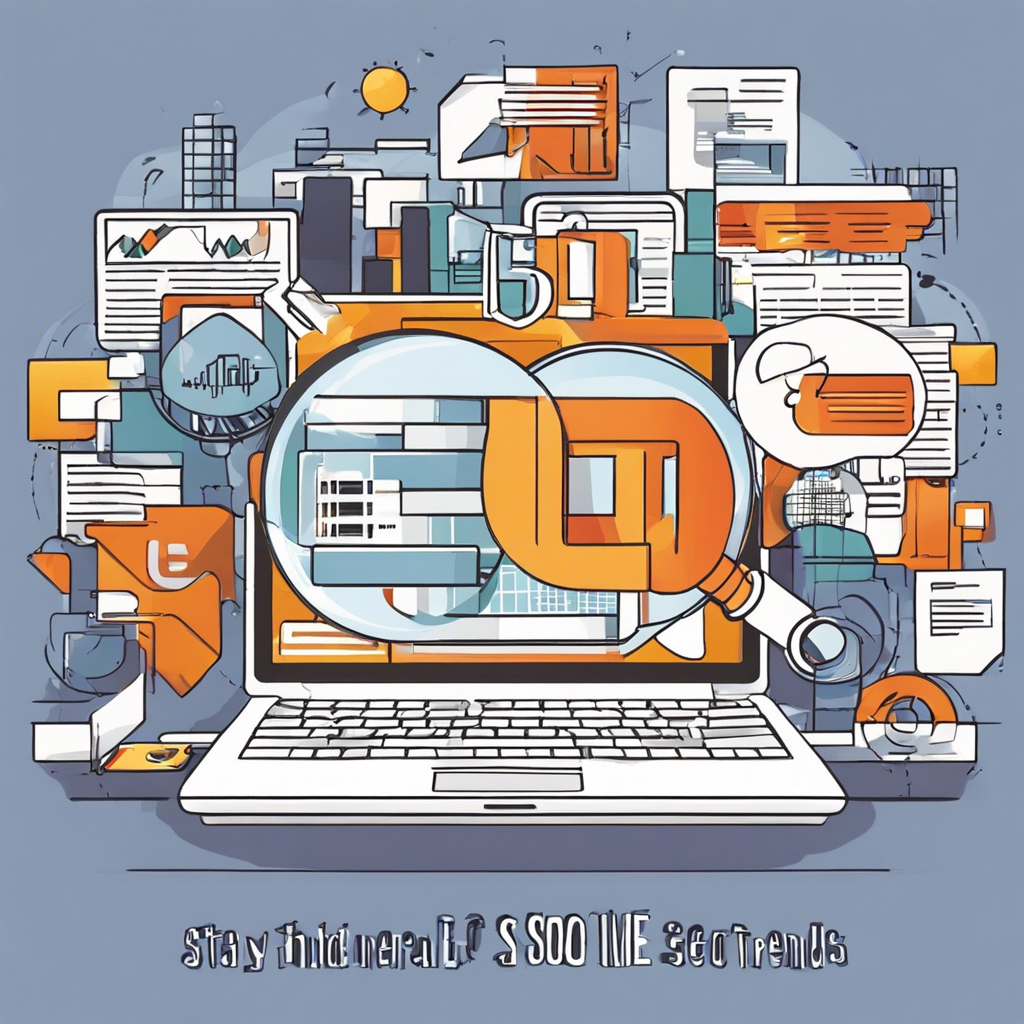Staying ahead in the digital arena means keeping up with the ever-evolving world of search engine optimization (SEO). As search engines update their algorithms and user behaviors shift, businesses must adapt their strategies to maintain and improve their online visibility. SEO is not a static field, and those who recognize and embrace new trends will be better equipped to climb the search engine rankings and drive organic traffic. Here’s your guide to staying ahead of the SEO game.
Understanding SEO Trends: A Dynamic Process
SEO trends are the collective behaviors, strategies, and techniques that gain prominence over time, reflecting changes in search engine algorithms, user preferences, and industry best practices. These trends go beyond fleeting fads; they represent significant shifts that can impact your online presence and performance. Keeping a pulse on these trends is essential for several reasons. Firstly, it ensures your website remains relevant and aligned with the latest search engine criteria. Secondly, it allows you to stay competitive within your industry by offering a better user experience and meeting evolving customer expectations. Lastly, embracing SEO trends can lead to improved online authority and credibility, solidifying your position in the digital marketplace.
The Role of Core Web Vitals in Modern SEO
Google’s introduction of Core Web Vitals has been a game-changer, offering a comprehensive set of metrics to measure user experience. These vital signs, including Largest Contentful Paint (LCP), First Input Delay (FID), and Cumulative Layout Shift (CLS), assess the usability and speed of your website. Optimizing for Core Web Vitals is now a critical aspect of SEO. You can enhance user experience and improve your search engine rankings by ensuring fast load times and smooth interactivity. Tools like Google’s PageSpeed Insights can provide valuable feedback on your website’s performance and areas for improvement.
The Rise of Voice Search and Its Implications
Voice search is no longer a futuristic concept but an integral part of our daily lives, thanks to the proliferation of smart speakers and virtual assistants. This trend has profound implications for SEO strategies. To adapt, focus on long-tail keywords and natural language queries in your content. Anticipate questions your audience might ask and provide comprehensive, conversational answers. Optimizing for voice search can significantly improve your website’s visibility and attract a wider audience.
Embracing Visual Search for Enhanced User Experience
Visual search, another emerging trend, allows users to search for information using images rather than text. This technology, already integrated into platforms like Google Lens and Pinterest Lens, is transforming the way users interact with search engines. To capitalize on this trend, ensure your website’s images are optimized with appropriate alt text and structured data. By making your visual content more searchable, you can attract users who prefer image-based searches, opening up new avenues for engagement and conversion.
The Power of Video Content in SEO
Video content continues to dominate the digital landscape, with increasing consumption across various platforms. From product reviews to how-to guides, videos offer an engaging way to capture and retain audience attention. When incorporating video content into your SEO strategy, focus on keyword-rich titles and descriptions. Additionally, transcribing your videos can provide valuable written content, further boosting your SEO efforts. Sharing videos on multiple platforms and optimizing them for search engines can significantly increase your online reach.
The Importance of Mobile-First Indexing
With more internet users accessing websites via mobile devices, search engines have adopted mobile-first indexing. This means that search engines primarily use the mobile version of your website for indexing and ranking. If your website isn’t optimized for mobile devices, you risk being left behind in search engine rankings. Ensure your website is responsive, with a design that adapts seamlessly to different screen sizes. A positive mobile user experience is crucial for SEO success in today’s mobile-centric world.
Structured Data Markup: Enhancing Search Results
Structured data markup, using schemas, is a powerful way to communicate more effectively with search engines. By adding structured data to your website’s HTML, you provide search engines with a clearer understanding of your content. This can lead to enhanced search results, featuring rich snippets or knowledge graphs, which are more visually appealing and informative. Structured data is particularly beneficial for businesses, as it can highlight reviews, product information, and other crucial details, making your search results stand out and increasing the likelihood of user engagement.
The Future of SEO: Artificial Intelligence and Machine Learning
Artificial Intelligence (AI) and Machine Learning (ML) are already shaping the future of SEO. These technologies enable search engines to understand user intent better and deliver more accurate search results. By leveraging AI and ML, you can optimize your content more effectively. Tools like Google’s BERT (Bidirectional Encoder Representations from Transformers) can help you create content that resonates with users and search engine algorithms. As AI and ML continue to evolve, staying informed about their impact on SEO will be crucial for maintaining a competitive edge.
Staying ahead in the world of SEO requires an understanding of these evolving trends and a willingness to adapt your strategies. From optimizing for Core Web Vitals to embracing voice and visual search, each trend presents an opportunity to enhance your online presence and connect with your audience in new and meaningful ways. Keep learning, experimenting, and refining your SEO strategies, and you’ll be well-positioned for online success in the ever-changing digital landscape. Stay tuned for the latest updates and trends, and remember that SEO is a journey, not a destination.
